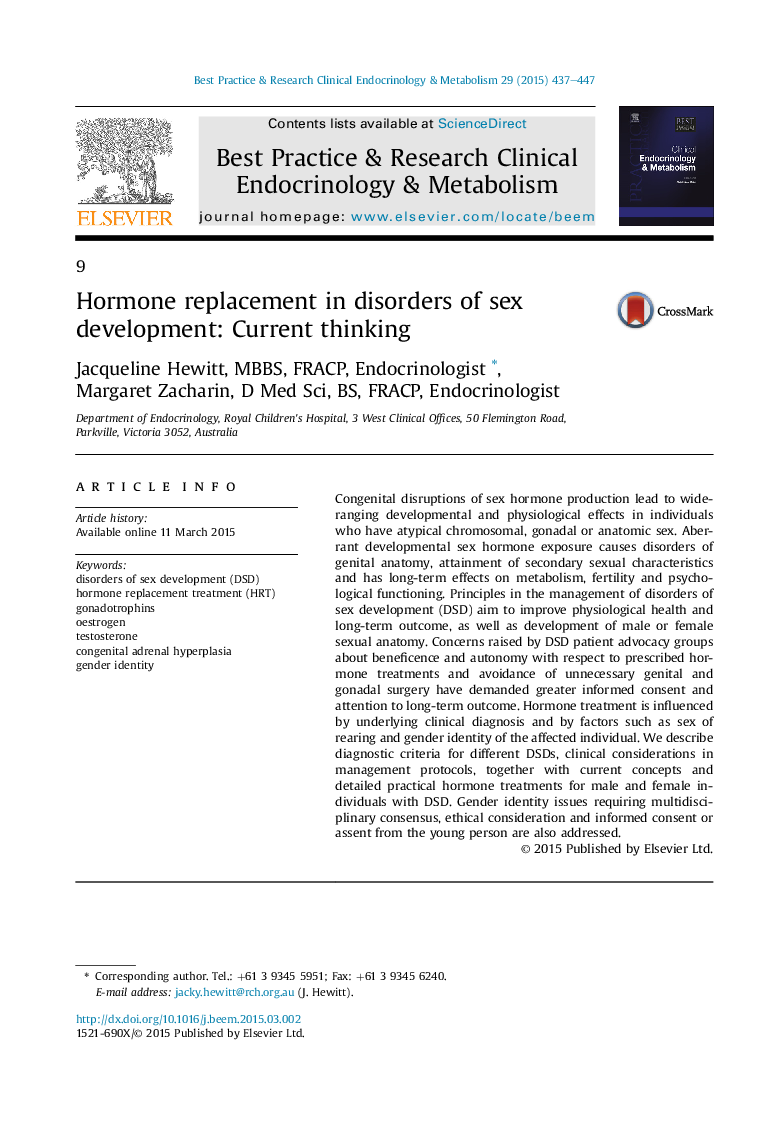| Article ID | Journal | Published Year | Pages | File Type |
|---|---|---|---|---|
| 2791572 | Best Practice & Research Clinical Endocrinology & Metabolism | 2015 | 11 Pages |
Congenital disruptions of sex hormone production lead to wide-ranging developmental and physiological effects in individuals who have atypical chromosomal, gonadal or anatomic sex. Aberrant developmental sex hormone exposure causes disorders of genital anatomy, attainment of secondary sexual characteristics and has long-term effects on metabolism, fertility and psychological functioning. Principles in the management of disorders of sex development (DSD) aim to improve physiological health and long-term outcome, as well as development of male or female sexual anatomy. Concerns raised by DSD patient advocacy groups about beneficence and autonomy with respect to prescribed hormone treatments and avoidance of unnecessary genital and gonadal surgery have demanded greater informed consent and attention to long-term outcome. Hormone treatment is influenced by underlying clinical diagnosis and by factors such as sex of rearing and gender identity of the affected individual. We describe diagnostic criteria for different DSDs, clinical considerations in management protocols, together with current concepts and detailed practical hormone treatments for male and female individuals with DSD. Gender identity issues requiring multidisciplinary consensus, ethical consideration and informed consent or assent from the young person are also addressed.
